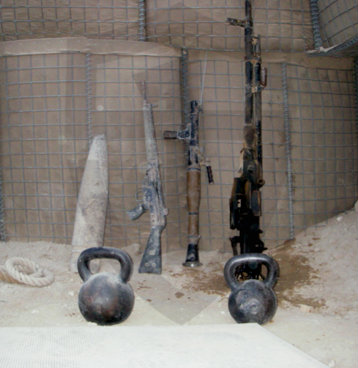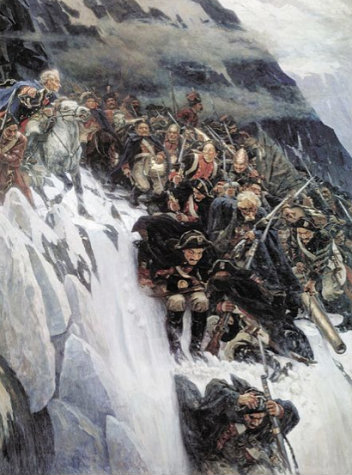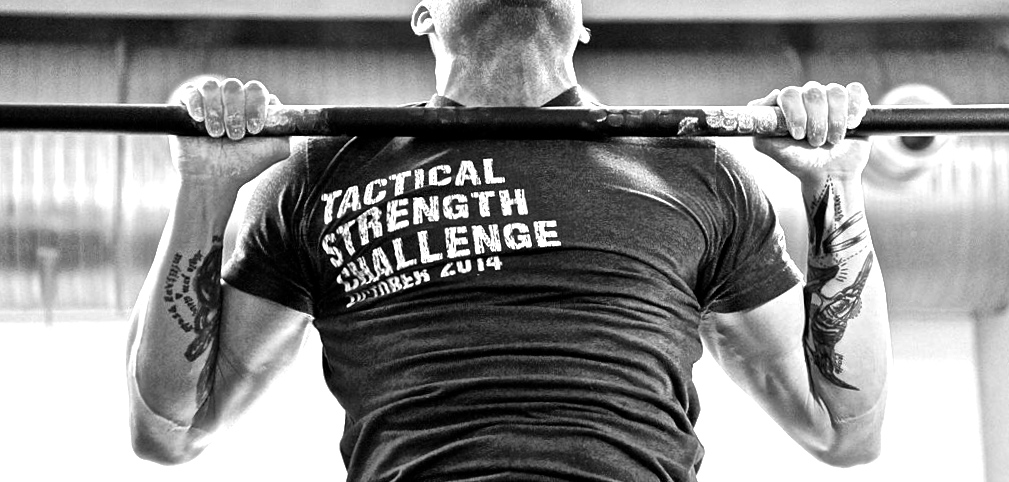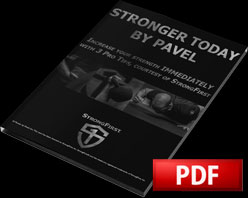It was 2002, and the RKC kettlebell certification was barely a year old. I was training many military and law enforcement operators and looking for ways to help them focus on exercises that would help them most in their duty. So I designed a Tactical Strength Challenge competition.

The Grass-Roots TSC History
There were two divisions. In the elite “Special Operations” division, the events were the tactical pullup, pistol, and snatch (one hand switch), all done with a 32kg kettlebell. The more democratic “Ready to Defend” division, named after a decades-old Soviet program for getting the youth in shape for military service, employed a 24kg kettlebell.
Thirteen athletes competed in the first Tactical Strength Challenge on October 12, 2002 in Philadelphia. TSC was not restricted to gun-carrying professionals, and Brett Jones decisively won the Special Operations division. The scoring was done according to the system my father put together in the 1960s for his soldiers. For each event, the competitor received the number of points that matched his placement, e.g. three points for being third in kettlebell snatches. If two or more competitors tied for the same place, they received the same number of points. In the end, each competitor’s points for all three events were added up and the competitor with the fewest points won.
Early on, TSC was supported and promoted by my company and by my partner in RKC, but very soon it got off our radar. I was busy teaching and writing, my business partner had his own hands full, and pretty soon TSC was on its own. Volunteers like Steve Freides ran the website, scheduled events around the world, refereed, and changed the rules when they deemed it necessary.
A true grass-roots movement, TSC has survived with zero corporate support for a decade. This is a testament to its resilience—very suitable for a warriors’ sport. StrongFirst is about to put its muscle behind the event and make it even more intense and competitive.
The Future of the TSC
Today the TSC events are:
- A three-attempt powerlifting deadlift
- Pullups for max reps (palms forward, no kipping, neck must touch the bar)
- Kettlebell snatches for max reps in a 5:00 time period (unlimited hand switches)
The Red Army knew what types of strength matter to a soldier. It never bothered with pushups or sit-ups. The military recruits’ physical included two strength tests: the isometric deadlift and the grip dynamometer. The TSC events are unmatched for building and testing both.
- The deadlift is the greatest predictor of overall strength and the most natural movement you can imagine. Deadlift-built hip, back, and leg strength is directly applicable to carrying a heavy kit, a wounded comrade, taking a shock of a parachute canopy opening, etc. Why the deadlift and not the squat? Because an operator does not need chafing thighs.
- The weighted pullup is indispensable for negotiating obstacles.
- The kettlebell snatch builds many types of endurance, bulletproofs hamstrings for explosive sprints and sudden stops, conditions the back and traps to put up with body armor, and builds fearsome grip.
The Tactical Strength Challenge is a truly democratic event. While larger competitors may have an advantage in the deadlift, lighter athletes have an advantage in pullups, and the kettlebell snatch challenges everyone equally.

Centuries ago, great Russian military leader Alexander Suvorov (he never lost a single battle and won 63) said, “Hard in training, easy in combat!” Combat will never be easy but lives are saved with focused training.
Accept the Tactical Strength Challenge!





What was the location of the first TSC?
The TSC has been held together by others besides me over the years. The most honorable mention must be reserved for Andy Alexander, SFG, who took over the web site several years ago and worked tirelessly on the registration and scoring systems, greatly improving both. The TSC would not have continued as it did without Andy’s intelligence, diligence, and strength. Thank you, Andy.
Thank you, Andy!
Great post as ever Pavel!
The TSC is deadly and brutal in it’s simplicity! Less is truly more here.
Your post brings to mind what is arguably the greatest graphic ever drawn – also involving Russians and a brutal winter:
http://www.significancemagazine.org/details/webexclusive/2038005/Napoleons-Russian-Campaign—200-years-on.html